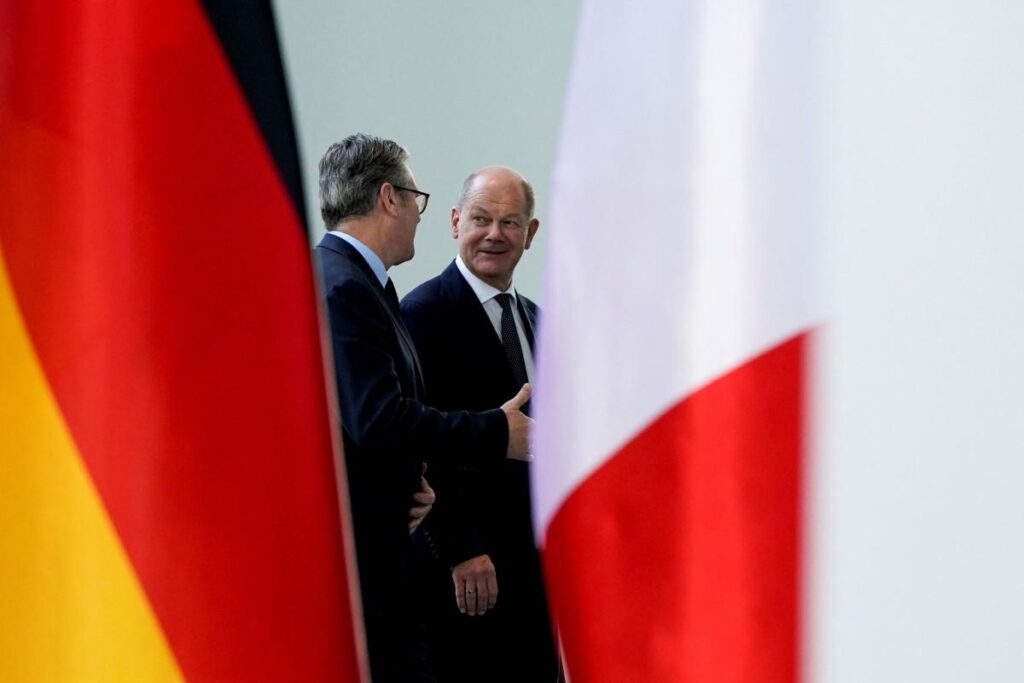On Wednesday, the UK and Germany will formalize a new security agreement that signals a significant step toward enhanced military collaboration between the European Union and the United Kingdom. This initiative comes amidst the backdrop of a newly elected Labour government in the UK that is focused on recalibrating its European relationships post-Brexit. The agreement, which has been described as one of the most consequential achievements under the current administration, marks a pivotal moment for both nations as they seek to strengthen their collective defense strategies and foster deeper cooperation within the context of NATO.
The security pact encompasses a variety of important military dimensions and establishes “unprecedented levels of new cooperation” between the UK and German armed forces, as highlighted by UK Defense Secretary John Healey. Specifically, the agreement facilitates the ability for British and German troops to conduct joint military exercises along NATO’s eastern flank, a strategic area of focus given heightened tensions in the region. Moreover, this partnership aims to expedite new weapons development initiatives while enhancing logistical and tactical support for Ukraine amid its ongoing conflict with Russia. This collaborative effort also encompasses the joint protection of critical underwater cables in the North Sea and a concerted push toward augmenting Europe’s air defense systems.
Significantly, Healey’s German counterpart, Boris Pistorius, emphasized that this agreement will enable both countries to synergize their defense capabilities across multiple domains, including air, land, sea, and cyber. The approach aims not only to bolster each nation’s military resources but also to solidify the European pillar within the NATO alliance. This is essential as both governments recognize the necessity of maintaining robust and adaptive defense strategies in light of emerging security challenges both regionally and globally. The agreement represents a clear acknowledgment of the interconnectedness of modern military threats and the importance of unified responses.
Furthermore, reports indicate that this security agreement may serve as a precursor to broader discussions regarding a formal security pact between the UK and the European Union. British officials have expressed intentions to initiate these negotiations in the spring, signifying an eagerness to establish a more structured and cooperative framework for security within Europe. This momentum is not confined to military matters alone, as the UK is concurrently pursuing enhanced cooperation with the EU across critical domains such as energy, health, and climate change—strategic areas that align with wider European interests and the need for cohesive action in addressing pressing challenges.
The evolving dynamics between the UK and Germany reflect a broader shift in European security postures, particularly given the increased geopolitical volatility in recent years. The collaboration between these two nations encapsulates a pragmatic approach to defense that transcends historical rivalries and underscores the urgent need for collective action in the face of contemporary threats. The emphasis on joint exercises, equipment supplies, and strategic partnerships speaks to a growing realization that national security is inextricably linked to coordinated efforts among European partners.
In summary, the signing of the UK-Germany security agreement marks a crucial turning point for military relations in Europe as the Labour government embarks on a reset of its foreign policy. By laying the groundwork for closer military ties and broadening the scope of cooperation across various security domains, this deal not only aims to enhance the capabilities of both nations but also paves the way for potential agreements with the European Union. As the situation in Ukraine remains precarious and global security challenges evolve, this partnership signals a determined effort to fortify defense strategies and promote a proactive stance within the NATO framework.

